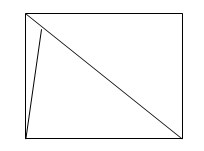teacher of Russian language and literature
MOU Budinska OOSH
Tver region
I offer a summary of the lesson on the Russian language in the 6th grade, which was developed for the textbook of M.T. Baranov. In the lesson there is an acquaintance with neologisms.
Students perform various tasks under the guidance of the teacher, thereby consolidating the topic of vocabulary.
Goals:acquaint students with the reasons for the appearance of new words in Russian;
develop the ability to use an interpretive dictionary to determine the meaning of new words;
- develop spelling vigilance
Demonstration material:Explanatory dictionary, cards for checking homework
Methods:pairing, conversation
Class progress
1. Org. lesson start.
2. Checking homework:
Terminological dictation
(1) The words used by the inhabitants of a particular locality are called
2) All words in the language are called...
(3) Words which are used by all residents irrespective of their place of residence are called: .
(4) Words related to the peculiarities of the work of people of a particular profession or specialty are called .....
(5) The human vocabulary is ...
(6) what the word means is called...
(7) words of the same part of speech opposite in meaning are called...
8) words of the same part of speech, the same in writing, but different in meaning, are called
9) words of the same part of speech, different in spelling, but similar in meaning, are called. .
Key to answers:
| 1 | dialectal |
| 2 | Lexica. |
| 3 | Commonly used |
| 4 | professionalism |
| 5 | lexicon |
| 6 | Lexical. |
| 7 | antonym |
| 8 | homonymous |
| 9 | synonymously |
- mutual verification by students of the work performed
3. Communication of the topic and objectives of the lesson.
- Today we will continue to study the vocabulary with you. In previous lessons, we talked about dialectisms, professional words, native Russian and borrowed. Today we will introduce you to a new group of words. What can you guess by solving the following task:
Fourth extra:
1. paper
2.
3. horse
4. Internet
- What word did you pick? Why?
- That's right, it's the word Internet, because it came up in our talk relatively recently.
Words that appeared in our speech relatively recently are called neologisms.
- Write down the topic of the lesson in your notebooks.
4. Study of new material
(1) familiarity with theoretical material.
Page. 72.
5. Primary consolidation of the studied material.
(1) textbook work:
Yep. 129 – Do this exercise orally
Yep. 130 – Write the words in a pattern:
The Aquanaut is ... (use a dictionary)
2) That's interesting.
From a thematic point of view, the most common words of this type can be divided into several groups:
(1) words -economics: offshore (free), roaming - "distribution; political terms: speaker - chairman of parliament",
Inauguration - "the ceremony of inauguration of the President of the country",
The rating is "assessment."
(2) words -terms related to computer technology,
site - "location"; file - submission of a document
(3) names of certainhousehold.
Mixer - "mixing apparatus or appliance"; toaster - "device for frying toast"
(4) sports terms and the names of certain games or sportsactivities that have become fashionable and popular recently, for example:
bowling - "ball; game of balls"; diving - "scuba diving",
(5) names of certain musical cultural phenomena
hit – “popular song”, single – “song recorded separately”, remake (remake) – “remaking”,
6) names of certain professions, type of activity(recently circulated), for example:
security – “security”, provider – “supplier”, realtor – “real estate agent”
(7) terms used in cosmetology:
lifting – “lift”, peeling – “cleaning the face”, scrub – “cream for exfoliation”,
(3) a letter of distribution:
- Now I'm going to dictate the words, and you're going to put them in the following columns:
| professionalism | dialectism | neologism | jargon |
| Vaccine, pointer, watercolor, vocalization, sandpaper, textbook, scuba, syringe, magazine | Burak, furnace, fight, rejuvenate, gutarize, flyatina (game), bay (commod) | Provider, design, poster, teenager, lunch, blockbuster, casting, killer, broker | Overseas, cut, spur, pair, tail, dormitory, stippouk, oak |
(4) subjugation:
It rained, and a thick fog rose over low meadow places. A bright rainbow spread across the sky, and scraps of clouds hastily swim into this luxurious arch. A strong piercing wind blew, and somewhere up on a steep bank trees creaked. The river ran fast and barely audible murmured near the piles of the bath.
(5) prepare for GIA:
1. In which row in all words is the same unstressed vowel root omitted, which can be checked by stress?
A) elective, looking...to move, app...tit
B) recollection ... nanie, St...
B) ed., iv., St.
D) n. useful, ..ronka, ..
2. Specify an erroneous judgment:
A) there are four sounds in the word COMM.
B) in cold all consonant sounds are solid
B) in the word "Gives a second consonant sound"
(D) in the word STRONG, the letters TSH represent the sound [c] 3. In what word is there an alternating vowel at the root:
A) dusk
(B) propose
B) moving
D) admits
6. Summary of the lesson:
- What are neologisms?
- Give examples of neologisms.
- What did you do in class?
- What difficulties have you experienced?
7. Homework:
No. 26, rule No. 132
{module Google_kvadrat}


